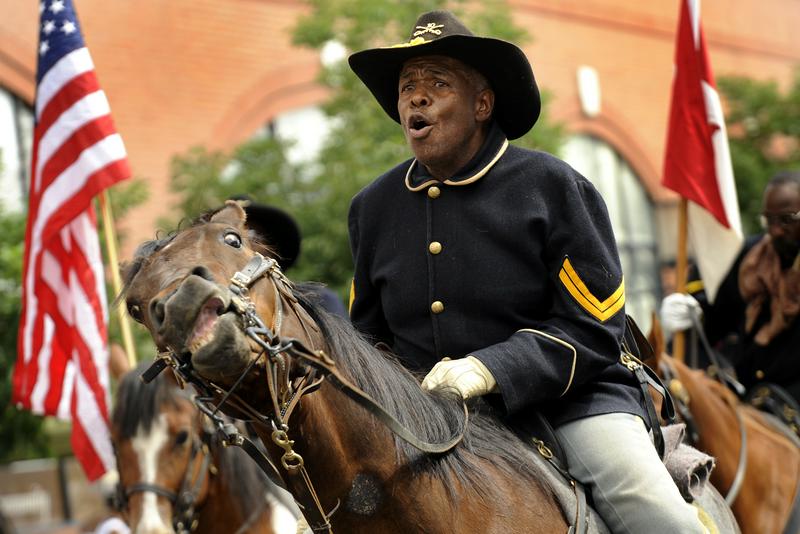What is Juneteenth?
By | June 17, 2019

On June 19, one of the lesser known, yet more important holidays is observed in the United States. Juneteenth, as it is called, is, in fact, the oldest celebration to honor and remember the end of slavery in the U.S. This holiday commemorates the moment when Major General Gordon Granger arrived in Galveston, Texas, with the announcement that the Civil War had ended and that the slaves had been emancipated. The twist was that this announcement came two and a half years after Abraham Lincoln gave his Emancipation Proclamation. So, why did it take so long for Texans to get the news? Let’s find out.

The Emancipation Proclamation
On January 1, 1863, in the midst of the Civil War, President Abe Lincoln issued a proclamation. He stated that all slaves held in possession of another human being in the rebellious Southern states “are, and henceforward shall be free.” Despite this, the Civil War raged on for more than two more years until Confederate General Lee surrendered in April of 1865.

No One Told Texas
When the Emancipation Proclamation was declared, it took some time for the news to reach Texas. Even after they received word of the new law, Texas slaveowners were not eager to share the news with their slaves. At that time, there were very few Union troops stationed in Texas to enforce the executive order and the Confederate troops and the Texas slaveowners were content to keep the status quo.

Enter General Granger
Although the Civil War officially ended in April of 1865, General Gordon Granger wasn’t sent to Texas until June of that year. When he arrived by ship into Galveston, his first task was to read “General Orders No. 3” to the people of Texas. This order simply stated, “The people of Texas are informed that, in accordance with a proclamation from the Executive of the United States, all slaves are free.” Prior to General Granger’s arrival in Texas, the nearly 250,000 slaves in that state had no idea that their freedom had been granted to them thirty months earlier.

The End of Slavery…”Jus’ Like That!”
As you can imagine, the slaves of Texas were overjoyed at the news. One former slave, Felix Haywood, was quoted in a local newspaper as saying, “The end of the war, it come jus’ like that—like you snap your fingers. Everybody went wild…we was free. Jus’ like that, we was free.” Haywood makes it seem like the emancipation of Texan slave was instantaneous, but in reality, it was met with resistance. Texas slaveowners told their slaves all kinds of fabricated stories to get them to continue working for them.

One More Cotton Harvest
Many historians have tried to determine why it took Texas two and a half years to comply with the Emancipation Proclamation. The most likely reasons are because plantation owners needed help on the farms and slaves provided a cheap labor source. The attitude among many Texas plantation owners was that they would free their slaves after just one more cotton harvest. That “one more harvest” stretched into two and a half years. Plantation owners had become so reliant on slave labor that they had no backup plan. Without slaves to plant, tend, and harvest their crops, they faced financial ruin.

Celebrating June 19th
By the next year, former slaves—many of whom had moved to Oklahoma, Louisiana, Arkansas, and other states—commemorated their freedom with celebrations on June 19th. Soon, the celebration’s name was muffled into Juneteenth. The Juneteenth celebrations were a time to gather with friends and family to enjoy a barbecue cookout and traditional Southern food. Some events included baseball games and fishing.

Juneteenth in Galveston
The June 19th celebrations of Juneteenth remain important in Texas, particularly in Galveston. In the early 1900s, the Juneteenth celebrations began to decline, with fewer and fewer participants joining in the festivities. During the Civil Rights Era, however, the holiday enjoyed a resurgence. On January 1, 1980, Juneteenth became an official state holiday in Texas.

Celebrating Juneteenth Today
Juneteenth is celebrated all over the country, not just in Texas. Two of the larger Juneteenth celebrations occur annually in Minneapolis and Milwaukee. Other cities and towns across the country, especially those with ties to the Underground Railroad, offer a Juneteenth commemoration. There are even events held at the Henry Ford Museum in Michigan and the Smithsonian Institute in Washington DC. Today’s Juneteenth celebrations have a dual purpose—to commemorate the freeing of Texas slaves and to educate the public about slavery and the African-American experience.

